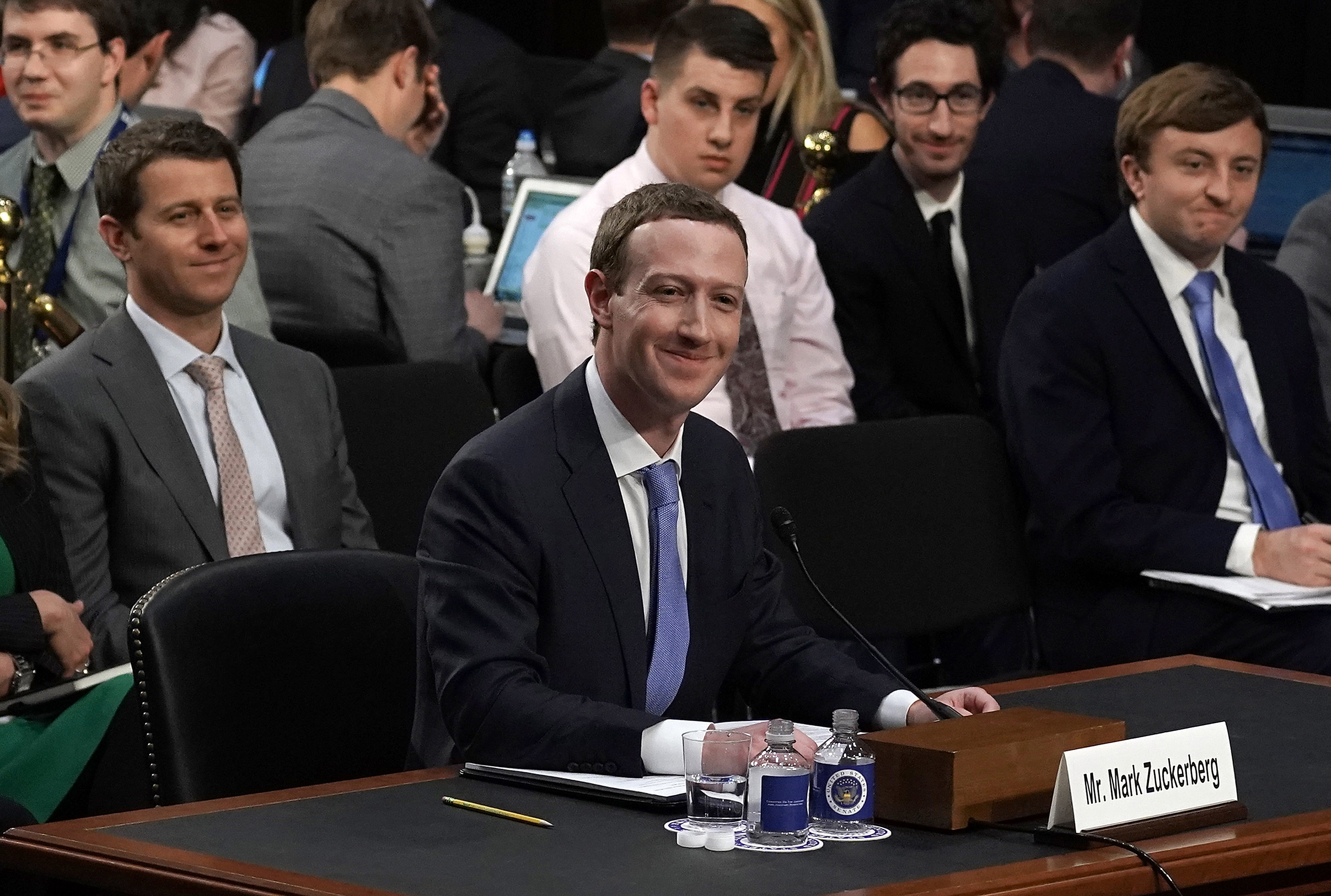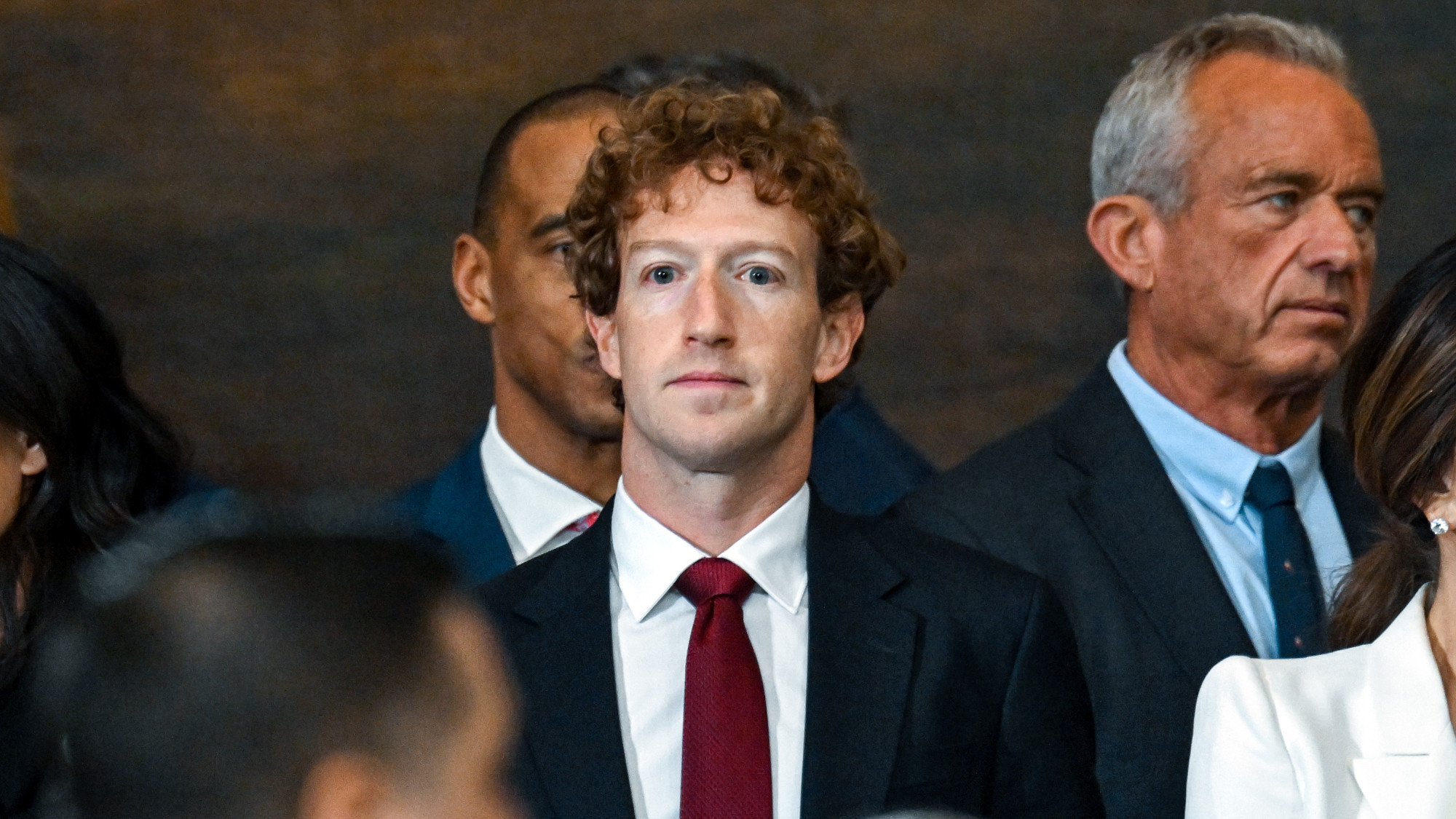Mark Zuckerberg: Facebook does not listen to user conversations for ad targeting
Internet entrepreneur tells US Senate that claims are just ‘conspiracy theory’

A free daily email with the biggest news stories of the day – and the best features from TheWeek.com
You are now subscribed
Your newsletter sign-up was successful
Facebook chief Mark Zuckerberg has told the US Senate that there is no truth to claims that the social media site records user audio to improve advert targeting.
The social network pioneer issued the denial in response to a question from Michigan senator Gary Peters yesterday during a joint hearing of the Senate’s judiciary and commerce committees.
Zuckerberg told the lawmakers: “You’re talking about this conspiracy theory that gets passed around that we listen to what’s going on on your microphone and use that for ads. We don’t do that.”
The Week
Escape your echo chamber. Get the facts behind the news, plus analysis from multiple perspectives.

Sign up for The Week's Free Newsletters
From our morning news briefing to a weekly Good News Newsletter, get the best of The Week delivered directly to your inbox.
From our morning news briefing to a weekly Good News Newsletter, get the best of The Week delivered directly to your inbox.
Although Facebook can upload videos with audio in them, he explained, there was none of the types of spying that the rumours suggest, says Engadget.
CNet reports that the “urban myth” has surrounded the social media site “for years”, resulting in Facebook issuing public denials “on multiple occasions”.
Those denials haven’t reassured everyone, however, with some users reporting that things they discuss in their phone conversations then pop up later in the adverts they see on the social network.
If you’re not convinced by Zuckerberg’s latest rebuttal, USA Today explains how to block Facebook from accessing your device’s microphone, in the site’s privacy settings, though this will prevent you from uploading videos with sound.
A free daily email with the biggest news stories of the day – and the best features from TheWeek.com
-
 How the FCC’s ‘equal time’ rule works
How the FCC’s ‘equal time’ rule worksIn the Spotlight The law is at the heart of the Colbert-CBS conflict
-
 What is the endgame in the DHS shutdown?
What is the endgame in the DHS shutdown?Today’s Big Question Democrats want to rein in ICE’s immigration crackdown
-
 ‘Poor time management isn’t just an inconvenience’
‘Poor time management isn’t just an inconvenience’Instant Opinion Opinion, comment and editorials of the day
-
 Is social media over?
Is social media over?Today’s Big Question We may look back on 2025 as the moment social media jumped the shark
-
 Metaverse: Zuckerberg quits his virtual obsession
Metaverse: Zuckerberg quits his virtual obsessionFeature The tech mogul’s vision for virtual worlds inhabited by millions of users was clearly a flop
-
 Social media: How 'content' replaced friendship
Social media: How 'content' replaced friendshipFeature Facebook has shifted from connecting with friends to competing with entertainment companies
-
 Meta on trial: What will become of Mark Zuckerberg's social media empire?
Meta on trial: What will become of Mark Zuckerberg's social media empire?Today's Big Question Despite the CEO's attempt to ingratiate himself with Trump, Meta is on trial, accused by the U.S. government of breaking antitrust law
-
 What does an ex-executive's new memoir reveal about Meta's free speech pivot?
What does an ex-executive's new memoir reveal about Meta's free speech pivot?Today's Big Question 'Careless People' says Facebook was ready to do China censorship
-
 What's Mark Zuckerberg's net worth?
What's Mark Zuckerberg's net worth?In Depth The Meta magnate's products are a part of billions of lives
-
 What Trump's 'tech bros' want
What Trump's 'tech bros' wantThe Explainer Elon Musk, Mark Zuckerberg and Jeff Bezos had 'prime seats' at the president's inauguration. What are they looking to gain from Trump 2.0?
-
 Big tech's big pivot
Big tech's big pivotOpinion How Silicon Valley's corporate titans learned to love Trump